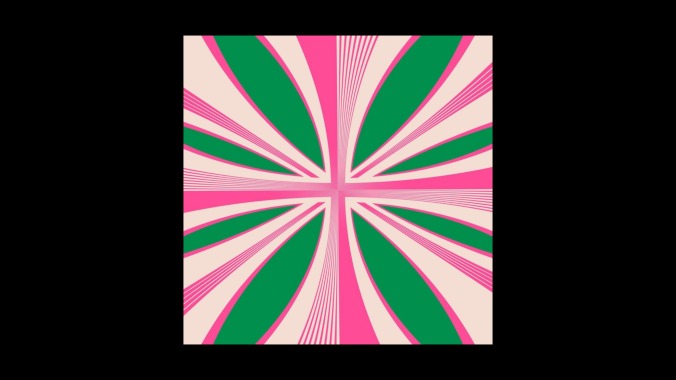A.G. Cook Sends Off PC Music on a High Note with Britpop
On his third studio album, the British producer puts a reverent pin in PC Music across three discrete discs that revel in a self-referential past and outline an already-here future.

The last time PC Music founder A.G. Cook released a record under his own name, the world had only just begun creaking from a halt. September 2020’s Apple washed ashore half a year into the COVID-19 pandemic, tangled with juxtaposed genre influences and twinkling ephemera from the flood that was 7G, the behemoth seven-disc he had dropped just a month earlier. Apple might have read as a post-quarantine tank emptying, but Cook, who has become one of the most quietly influential producers in pop music over the past decade, is nothing if not idea-rich. Four years later, Cook’s third studio album Britpop catalogs some of PC Music’s leftover wealth (the label announced last June it would stop releasing new music after 2023) before locking in on an instrument he long set aside: his voice.
Split into three distinct discs billed as the Past, Present and Future, Cook’s new record aims to make sense of it all without letting too much mist cloud his eyes. Not a greatest hits supercut but a zig-zagged roadmap through preference evolutions and knotty hyperfixations, Cook reconjures the spell cast by PC Music’s very best in seven seemingly from-the-vault tracks. Disc 1 maintains a steady dance-floor pulse without ever quite reaching the euphoria of a “Beautiful (2023 Edit)” or 7G favorite “Show You What,” the latter of which is re-tooled into the gorgeous, feedback-heavy build and collapse of Disc 1 highlight “Prismatic.”
PC Music diehards will warm quickest to Disc 1, a self-referential love letter to the label that courses with Cook’s signature deconstructed production style. Cook, the late SOPHIE and their many aesthetic children treat samples and synths like layers of water and oil that never fully settle or separate, coagulating basic tones into independent sites of creation. The technique might sound literally distasteful, but the fluid, elemental clash that defined the PC Music approach has clued in a vast swath of artists across the spectrum of pop today, with Cook producing for everyone from Sigur Rós’ Jónsi to Beyoncé. Arguably Cook’s most high-profile collaboration, with Charli XCX, has also been one of his lengthiest. Cook’s Britpop has intertwined repeatedly with Charli’s Brat rollout, across Boiler Room sets and lyrical shoutouts, both Brits shepherding each other somewhere new yet familiar and hyping each other up behind the decks—same shit, different year.
-

-

-

-

-

-

-

-

-

-

-

-

-

-

-

-

-

-

-

-

-

-

-

-

-

-

-

-

-

-

-

-

-

-

-

-

-

-

-

-








































